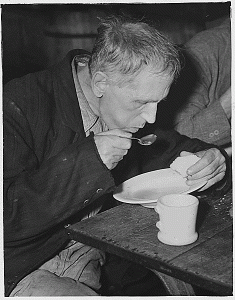Franklin D. Roosevelt, during his first Inaugural Address in the depths of the Great Depression, famously declared, “The only thing we have to fear is fear itself.”

Roosevelt, however, used the people’s justified fear to arrogate more power to the government, a move that infuriated his opponents but ultimately gained favor with the electorate. Sound familiar?
Today’s great fear used to political ends is not economic ruin, but terroristic violence. It matters little that more Americans are killed by furniture than by Daesh (the endearing acronym used by the French for the Islamic State in Iraq and the Levant).
Since the attacks of November 13, the French, too, have been told that drastic measures are needed to combat a threat that, while real, is minuscule compared with, for instance, deaths by lightning bolts.
The latest proposal from President François Hollande would strip terrorists of their citizenship. A nice sound bite, but really? For one thing, it’s against international law to make someone stateless, so the plan would affect only dual citizens. For another, can you imagine that someone planning a suicide bombing will think, “Gee, if I follow through with this, I’ll lose one of my passports.” And then change his mind?
This proposal would require amending the Constitution. The Justice Minister, the equivalent of attorney general, Christiane Taubira, found it so absurd she resigned rather than see it go into effect. Thomas Piketty, the eminent economist, wrote in his blog for Le Monde, “A l’incompétence économique, voici que le gouvernement ajoute l’infamie,” or “To its economic incompetence, the government has now added infamy.”
But the purpose, as I see it, isn’t to try to scare terrorists. It’s to establish a precedent.
Once you can strip someone of his nationality because of terroristic plans, it’s a short step to stripping people of their nationality for whatever reason. A counterproposal, quite reasonable in my view, would have been to strip them of certain civil rights after trial and conviction, much as convicted felons in the States are forbidden to vote. But the mob will have none of it.
Americans are well used to this theater, ever since September 11. One of the lowest points was shortly before Election Day, 2004, when my colleague and former classmate, James Risen, uncovered the government’s extensive illegal spying on ordinary citizens. To its lasting shame, the New York Times spiked his story, not wanting to rock the boat. Facing exposure of its atrocious behavior, the Times published the news belatedly, but well after George W. Bush had won re-election.
The latest effort by the government to justify invasion of privacy involves its effort to force Apple to write software to break the strong encryption it recently started installing on iPhones. While the government says its request to Apple is tailored narrowly, that’s not true. Like the French government, the American government wants to create a precedent.
Both France and the United States have decided that for political reasons, preying on fear is better than promoting confidence. It wins votes.
Much more difficult is to focus on overcoming fear. It has been the basis of spiritual growth for centuries. The concept appears more than 100 times in the Bible; Buddhism teaches the importance of distinguishing between healthy and unhealthy fear. Al-Anon, a Twelve Step program for families and friends of alcoholics, puts its focus on personal peace of mind, regardless of the craziness around us.
It’s not easy to attain serenity, but it’s necessary.